During a homegoing, the soul is thought to return home to its heavenly origins. Much planning goes into these African American funerals, and they often involve spirited processions, gospel hymns, and fervent prayers to honor the life of the deceased and their ascension to heaven.
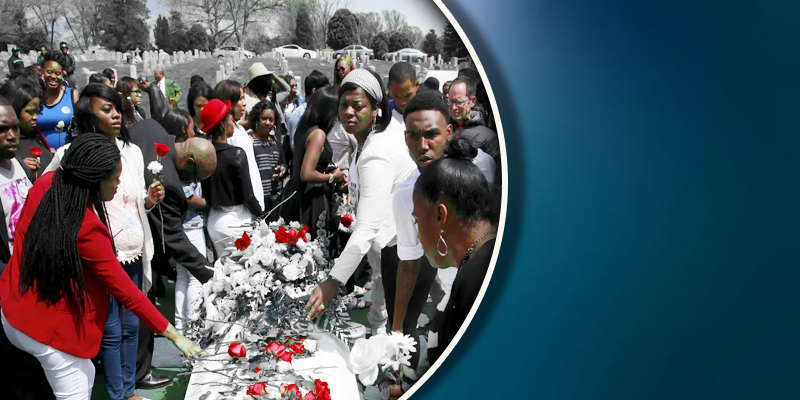
This article examines the funeral customs of African Americans, a community that was forcibly uprooted to a new environment and way of life in the 17th century, but who eventually saw their new customs, which were born out of emotional and spiritual necessity, serve as an inspiration for what is now regarded as the African American homegoing.
Understanding homegoings
The phrase “homegoings” might be interpreted at first glance as a cultural allusion to returning to the culture’s African origins. However, a closer look reveals that it’s a spiritual homegoing, rather than a cultural one, inspired by contemporary African American burials.The key is that homegoings are Christian celebrations.
A modern African American funeral is not very different from most other funerals observed in contemporary American culture. It typically celebrates the deceased’s return to heaven to live forever under the rule of Jesus Christ.
The elaborate nature of the ceremony is a crucial aspect that frequently sets apart African-American funerals from others. An African American funeral is passionately celebrated with no expense spared, often at a high cost.
However, this distinction seems to be gradually disappearing as other American cultures begin to share the enthusiasm with which the African American community celebrates Christianity. In a few decades, there may not be much difference between funerals conducted by African Americans and those conducted by other cultures.
Funeral Components in African American Culture
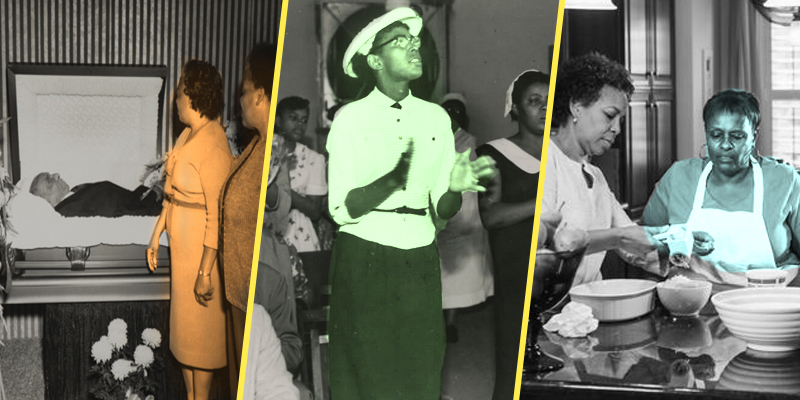
Most African American funerals adopt the same general format as most Christian funerals. The first event is a viewing ceremony, which takes place a week after the death and involves gatherings of the deceased’s family and friends for a few hours. The body is typically well-groomed and made-up before this service, and funeral-goers are encouraged to tenderly approach the corpse for a few minutes of peace and reflection on earthly life.
The funeral service itself happens a day or two after the viewing. This is frequently where the most significant differences can be seen compared to funerals from other American cultures.
Black funerals typically discourages inhibitions. You can expect spirited celebrations of love and faith, complete with loud, upbeat music and a lot of uplifting, spirited preaching.
Everyone who wishes to speak at these funeral services is invited to do so and offer stirring tributes to the dead—and above all—to God. (In fact, the specific acts and events of the deceased’s life are frequently given little attention at African American funerals today.) The primary emphasis is on God’s eternal victory, which He has attained by returning to His beloved child.
This doesn’t mean that significant events in a person’s life aren’t discussed during an African American funeral; they are just not highlighted. The highlights of the typical African American funeral are God’s glory, not the individual’s. One could argue that this is the main distinction between African American funerals and those held in any other Christian culture.
The customary funeral procession from the location of the memorial or funeral service to the cemetery where the burial will take place follows the funeral services. It still plays a significant role in African American culture, despite gradually de-emphasizing this aspect of the traditional funeral in other Christian cultures.
In many instances, African American funeral processions can resemble a full-fledged parade, with a marching band (typically playing upbeat jazz or ragtime music) and an elegant moving structure with which the dead is triumphantly carried to their resting place in a coffin under the supervision of elaborately dressed pall-bearers.
The significance of this joyous procession, which most say is influenced by the joyous way in which Jesus Christ was escorted triumphantly into Jerusalem for his last days on earth, has been theorized by many experts in the death care industry as the main reason why corpse cremation has not become as popular in the black communities as it has with other cultures on the American continent.
An essential component of an African American funeral is having the deceased’s actual body available to be carried triumphantly to the cemetery for burial.
A Breakdown of the traditions of African American Funerals
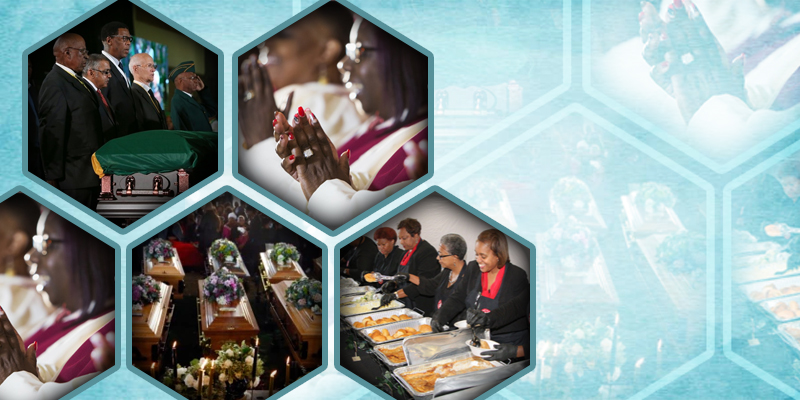
- Gathering of family and friends
Friends and family come from near and far for the event. The black community used funerals as an occasion to come together, show support for one another, share in each other’s pain, and come together to celebrate the life of someone they cared about.
It is expected that everyone who knows the deceased will try to attend, whether it be a physical funeral or a virtual one. Even distant or feuding family members will put up a temporary truce to attend a funeral and honor the life of a family member.
- A posh coffin
Even though not every family may want to do so, many do prefer to buy an expensive or upscale casket for their loved ones. This is one area where African Americans frequently go all out. Many families will decide to spend a sizable sum on the casket if given a chance.
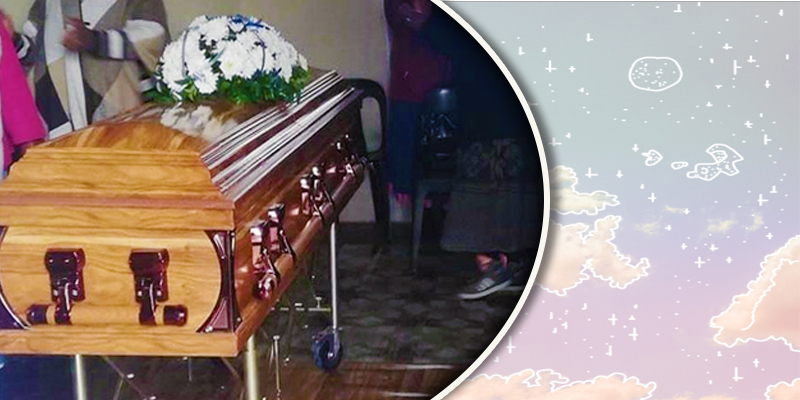
Contrary to how certain cultures would perceive it, the funeral’s overall cost is not viewed negatively. Many African American families are content to go all out when given a chance to celebrate a community gathering and a life in memory of a family member.
- Open casket (Casket Sharp)
The open-casket Homegoing is customary for African Americans, and rumors about why may start to circulate when they don’t do it. You may overhear remarks implying that the deceased could not be “fixed” by the African American funeral directors to a lifelike position or that the bereaved did not want “so-and-so” all up on their deceased loved one.
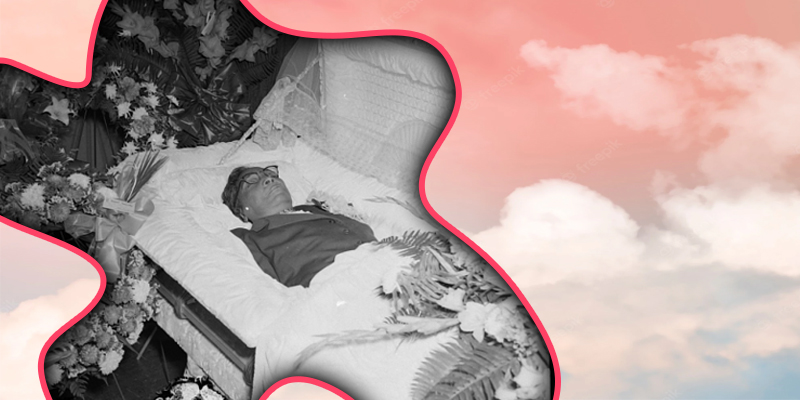
Whatever the cause, it is more often than not the case that the body will be in plain view throughout the entire ceremony.
In contrast, it is equally common for the funeral home employees to shut the casket as soon as everyone who came to pay their respects had finished their viewing and entered the homegoings.
The term “casket sharp” came from the homegoing, one of the few occasions on which black people were permitted to appear without being identified as someone’s slave, servant, or Jim Crow minstrel.
- Spectacular Funeral Processions
As mentioned above, African American funerals and homegoings are deliberately ornate and meticulous occasions, and this is also true of the procession from the family home to the church or place of the funeral ceremony. The use of limousines or other upscale cars by family members is common.
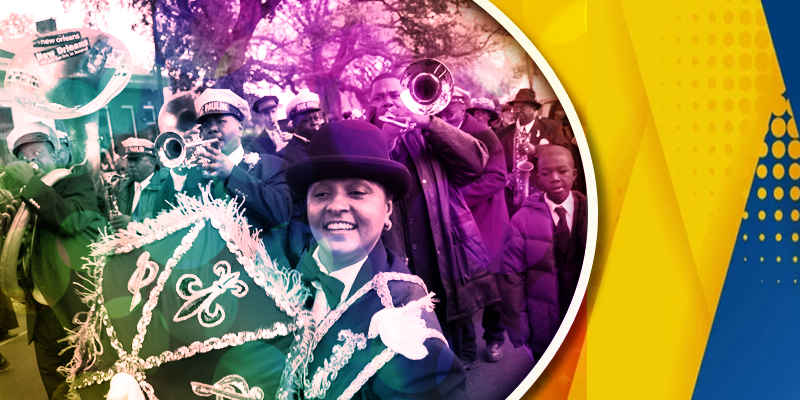
Depending on the family, the funeral procession may be a solemn, formal event or a joyful celebration of life, like the second-line funeral procession widely seen in New Orleans. Although extended family members and residents frequently participate, family and close friends traditionally make up the procession.
Emotional Display
Funeral etiquette during an African-American funeral permits emotion to be on full show, unlike funerals that are noticeably sad and where attendees restrain from joy or even weeping. Attending an African American funeral will allow you to witness the joy and sorrow the community has for the deceased’s passing.
The families exhibit happiness because they know their loved one has gone back to heaven and is now with God. Contrarily, you might witness a more overt display of grief if the individual died tragically or as a young adult.
Tributes
Many individuals, including the pastor, relatives, and friends, offer eulogies for the departed. Each speaker is given a time limit, as is customary at funerals, although more frequently than not, these limits are viewed as suggestions rather than being strictly enforced.
The floor is open to anybody who knows the deceased.
Preaching and supplication
A pastor usually conducts the funeral ceremony, preaches, and leads in prayer. The deceased’s good deeds may be mentioned in the sermon to offer inspiration for those attending the funeral to live a life deserving of heaven. Then they will pray for the deceased’s family, the mourners, and the helpers.
Choices of music
Gospel songs, spirituals, and church hymns frame the homegoing celebration. The church choir begins the service by singing hymns about heaven, God, hope, and the revivifying power of the Lord while mourners are led inside by ushers from the church and/or the funeral home employees.
Soloists can also express sympathy and respect through the renditions they choose. It is also typical for soloists to talk about their relationship with the deceased as they get ready to sing, cry while remembering them, and utilize the song to express their grief privately while also taking action to heal in a comforting setting publicly.
R.I.P. T-shirts
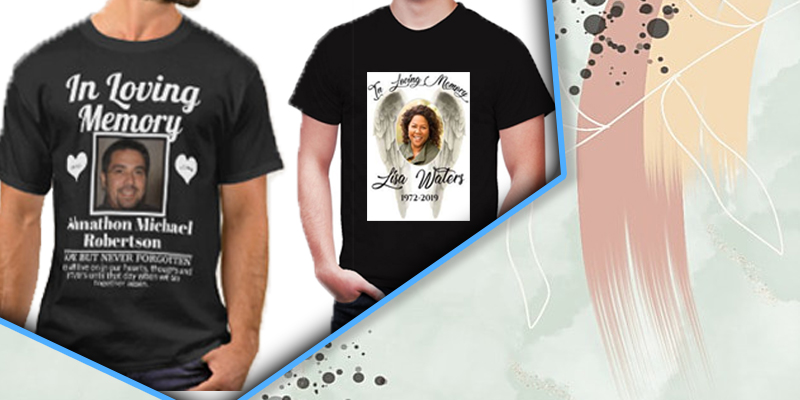
R.I.P. T-shirts are traditionally worn in times of grieving. African American culture may not be the only one that does it, but it is unquestionably distinctive. These T-shirts contain a high-definition image of the deceased with imagery and phrases significant to their life and the grieving family. Their origins are many and may be traced back to urban gang culture in the 1980s and 1990s and the developing hip-hop culture.
